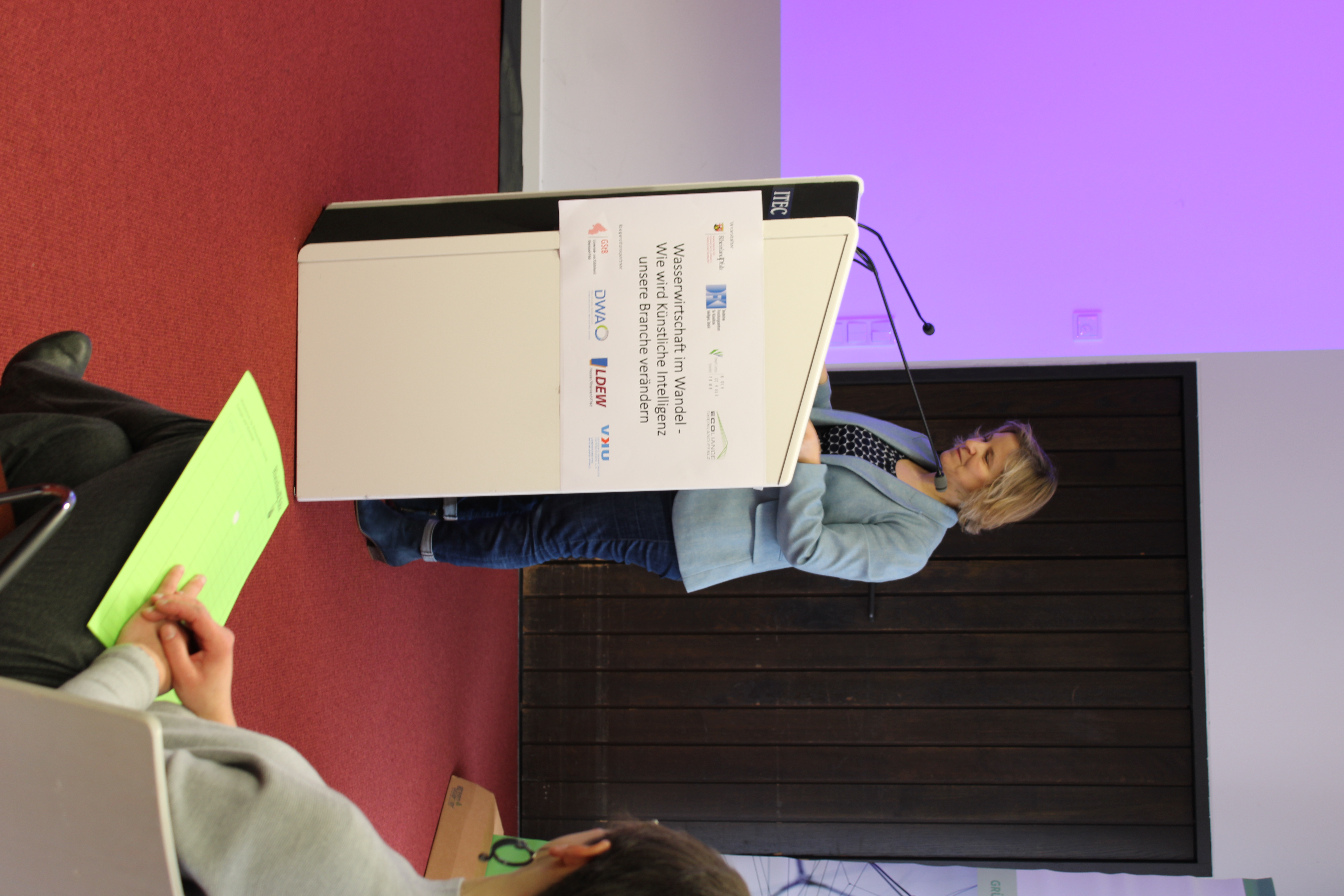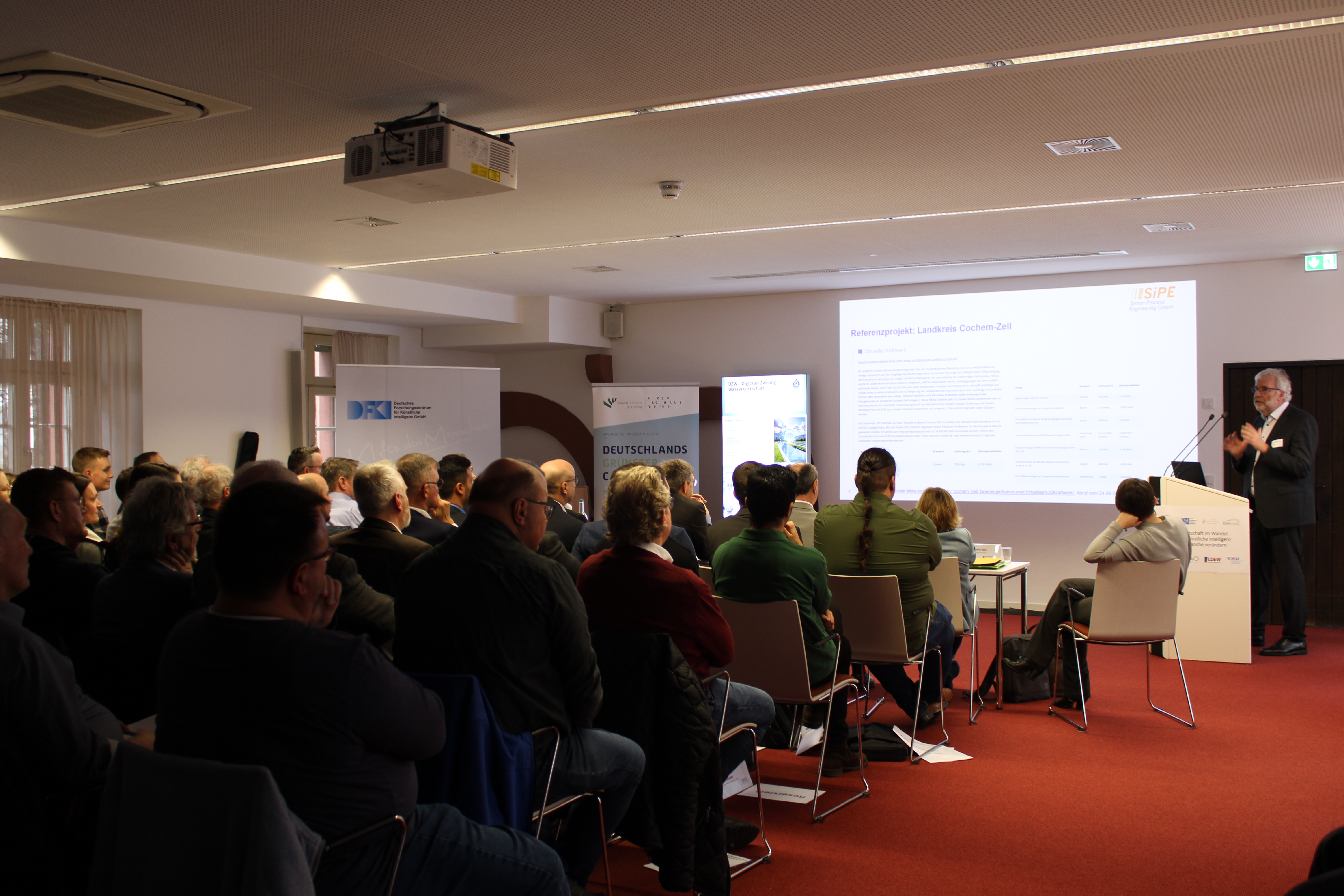Water management in transition: a review of a groundbreaking event
The event "Water management in transition - How will artificial intelligence change our industry" on February 14, 2024 at the Erbacher Hof in Mainz was filled to capacity. The organizers Ecoliance GreenTech Innovation GmbH, in close cooperation with the Ministry for Climate Protection, Environment, Energy and Mobility (MKUEM) Rhineland-Palatinate, the German Research Center for Artificial Intelligence (DFKI), Trier University of Applied Sciences and other cooperation partners such as the RLP Association of Municipalities and Cities, the DWA, the LDEW and VKU, were very satisfied with the response. "This event really struck a chord," said Michael Jakob, Managing Director of Ecoliance GreenTech Innovation GmbH and Winfried Schreiber from MKUEM.
One highlight of the event was the inspiring speech by Climate Protection Minister Katrin Eder. With great conviction and foresight, she emphasized the importance of artificial intelligence (AI) for the water industry: "Artificial intelligence in the water industry is not just a technological innovation; it is an indispensable step towards a sustainable and future-proof industry." These words set the tone for a series of presentations and discussions that highlighted the broad spectrum and diversity of AI applications in the industry.

From the efficient use of AI at the main sewage treatment plant in Trier to innovative solutions in drinking water supply in the West Eifel network and automated sewer planning in Egypt - the examples of successful implementations presented were impressive proof of the potential of artificial intelligence. The use of "electronic" employees, presented by the company Zahnen Technik, was particularly noteworthy. Benedikt Ney demonstrated how AI can be used as a tool to combat the shortage of skilled workers. Norbert Meyer from BIT Control explained how important good data quality is for any digitalization measure. Professor Ralf Simon presented the optimized own power supply with the help of a virtual power plant in the balancing group model with AI in cross-border cooperation with Luxembourg.
 |
 |
The enormous response and high level of interest, which was reflected in the full capacity of the event and the need for a waiting list, confirmed the relevance and topicality of the subject. Winfried Schreiber, Head of Water Management Policy at the MKUEM, concluded the event with the promising announcement that this was just the start of further activities.
The event marks an important milestone in our efforts to make the water industry fit for the future through the use of innovative technologies such as artificial intelligence. We would like to thank all participants, speakers and partners for their contribution to this success and look forward to continuing the discussions and taking the next steps together.
